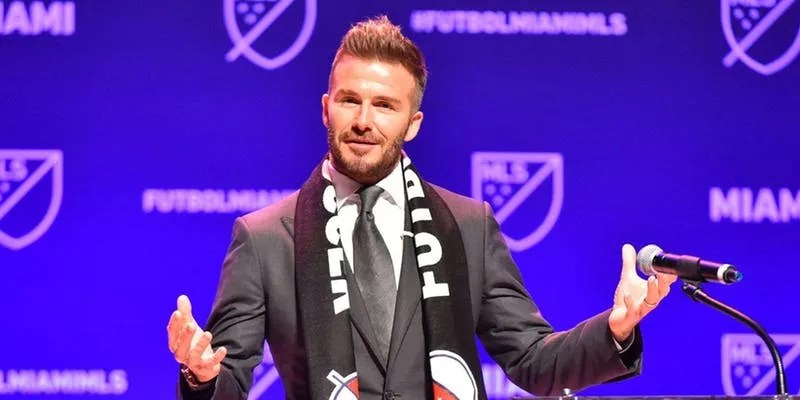
Courtesy of Creativas Group

Audio By Carbonatix
Update: The resolution backed by Commissioners Joe Carollo and Manolo Reyes to cease negotiations with Miami Freedom Park was changed into a different item, requiring a final lease contract or status update to be presented to the commission on December 12. That means that term-limited District 1 Commissioner Willy Gort, an opponent of the project, will have been replaced by then.
A single vote today could dash David Beckham’s dreams of building a Major League Soccer stadium in Miami.
City of Miami commissioners will meet this morning to consider the fate of Miami Freedom Park, a proposed $1 billion commercial complex including a 25,000-seat soccer field for the nascent MLS franchise Inter Miami. The proposed site was originally set for construction in Overtown, but Beckham and partners have since switched to the city-owned Melreese golf course, east of Miami International Airport.
With the help of local businessman Jorge Mas and investor Marcelo Claure, Beckham has so far successfully navigated a tricky approval process without fully providing important details about the project. A 2018 referendum on whether to offer exclusive negotiating rights for the development site to Miami Freedom Park was approved by more than 60 percent of Miami voters. The vote was a significant victory for Beckham and company: Although they still need the support of at least four of the city’s five commissioners before any deal can move forward, Miami Freedom Park stakeholders are free to negotiate a lease with city officials without the threat of a bidding war against other competitors and without any set deadline.
But all of that could change today if city commissioners vote to pass a resolution to cut off talks with Beckham’s group and allow other investors into the picture. The resolution was introduced by District 3 Commissioner Joe Carollo and sponsored by District 4 Commissioner Manolo Reyes.
Reyes has been one of a few thorns in the side of Miami Freedom Park’s ambitious project, which enjoys strong support from Mayor Francis Suarez. It was Reyes who called for an early vote on the lease for the Melreese redevelopment before term-limited District 1 Commissioner Willy Gort is replaced. Reyes has also accused city officials of slow-walking the release of project details in the interest of buying time until Gort’s replacement takes over. (A District 1 runoff between former state Sen. Alex Diaz de la Portilla and businessman Miguel Gabela will be held November 19.)
Before the referendum vote last year, Mas told Miami Herald reporters that voters would know “every single detail” of the future lease. What they got instead was a glorified outline. Opponents of the project question whether voters had enough information about a project that could easily spiral into a real-estate giveaway to developers.
The sales pitch for the stadium is a familiar one. Investors say Miami Freedom Park would pad city coffers through additional tax revenue and rent payments while adding decent-paying jobs to the area. So what’s the catch? As anyone following the shambolic rollout of Marlins Park in 2011 can tell you, shiny new sports venues often come with eye-popping bills that end up footed by taxpayers. However, unlike the Marlins stadium boondoggle, Miami Freedom Park has said it will cover all costs related to redeveloping the Melreese site.
In other words, unless that promise is broken, one of the biggest potential costs to taxpayers would be an opportunity cost. Could Miamians end up losing out on a better deal on Melreese?
The no-bid lease approved in the referendum lasts 99 years, establishing a minimum annual rent of $3.6 million or 5 percent of gross rent revenue collected from tenants at the site. Some say the appraisal of the land that led to the $3.6 million figure is lowballing the property’s real worth, according to reports by the Miami Herald. Moreover, because the deal involves a lease and not a sale, Miami Freedom Park will not be required to pay property tax.
Today’s vote could be the latest defining moment in what’s become a contentious five-year odyssey for Beckham and his cohort. For the time being, Inter Miami, which will begin its inaugural season next year, is expected to play its home games for at least two seasons at a stadium being built in Fort Lauderdale.
The resolution to end talks with Miami Freedom Park will need the support of at least four commissioners to avoid a veto by Suarez. The mayor has said he could use his veto power if the commission voted before he believed a deal was ready.